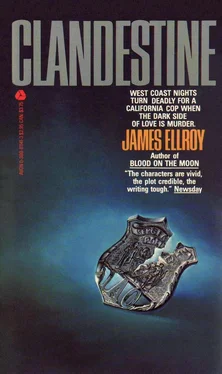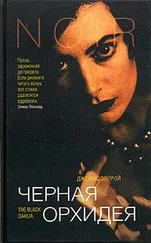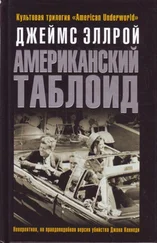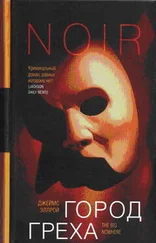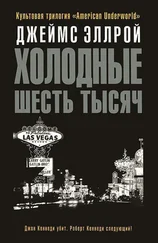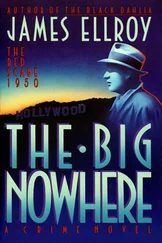I took a seat without being asked, and he took one across from me. My mind was jumping with questions that I never got the chance to ask — I didn’t need to. Berglund opened all the windows in the room for air and began to talk.
He talked without interruption for seven hours, his manner by turns plaintive, morose, but above all else tragically accepting. It was an intimate story, a panorama of small-town life, small-town talk, small-town hope, and small-town retribution. It was the story of Marcella DeVries.
They had been lovers from the very beginning, first in spirit, then in flesh.
The Berglund family had emigrated from Norway the same year as the DeVries family had left Holland. A network of Old Country friends and cousins secured work for the two families in the stock yards of Chicago.
It was 1906, and work was plentiful. The hardy Berglund men became foremen, the quicker-witted DeVries men became master bookkeepers. The three Berglund brothers and Piet and Karl DeVries shared a dream common to immigrants — the dream of Old Country power, the dream of land.
All five men, then in their thirties, were impatient. They knew that the feudal power they so desperately desired could not be achieved by the attrition of begging, borrowing, scrimping, and slaughtering cattle with ten-pound sledgehammers. Time was not on their side, and history was not on their side. But brains and ruthlessness were, compounded by their Calvinist religious fervor, and the five men embarked on a career of crime, with only one goal in mind: the acquisition of twenty-five thousand dollars.
It took three years, and cost two lives, one from each family. The Berglunds and DeVrieses became burglars and armed robbers. Piet DeVries was the acknowledged leader and treasurer, Willem Berglund his adjutant. They were the planners, the shrewd overseers of impetuous Karl DeVries and the outright violent Hasse and Lars Berglund.
Piet was a romantic intellectual, and an ardent lover of Beethoven. He loved jewelry, and converted the cash gleaned from the gang’s burglaries into diamonds and rubies that he sold in turn for a small profit on the commodities exchange, always keeping a few small gems for himself. He longed to be a jewel thief — for the romance of it as well as for the profit — and he planned the strong-arm theft of an elderly, jewel-bedecked Chicago matron known to attend the opera unescorted. His brother Karl and Lars Berglund were to do the job. It was 1909, and the money from the robbery would put them well over their twenty-five-thousand mark.
The woman traveled to and from her home on the near north side in a horse-drawn carriage. The men waited under the steps of her brownstone, armed with revolvers. When she pulled to the curb and her driver helped her up the stairs, Karl and Lars sprang from their hiding place, expecting to easily overpower their prey. The driver shot them both in the face at point-blank range with a custom-made six-shot Derringer.
The three surviving members of the Berglund-DeVries combine fled to St. Paul, Minnesota, with eighteen thousand dollars in cash and jewelry. Hasse Berglund wanted to kill Piet DeVries. One night, drunk, he tried. Willem Berglund interceded, beating Hasse senseless with a lead-filled cane. Hasse was irreparably brain damaged, and Willem was distraught with guilt. To assuage Willem’s guilt, Piet placed the now childlike Hasse in an asylum, paying the director of the institution two thousand dollars to keep him there in perpetuity.
Where were two immigrants, one Norwegian, one Dutch, with sixteen thousand dollars, without wives or children, and above all else, without land, to go? Their dream was dairy farming, but now that was impossible. Sixteen thousand dollars would not purchase two dairy farms, and co-ownership was out of the question — the two men were bound by spilled blood, but hatred lay in abeyance beneath that bondage. So they traveled, living frugally, drifting through Minnesota and Wisconsin until they ended up, in 1910, thirty miles east of Lake Geneva in a little town in the middle of a giant cabbage field.
They married the first girls from their home countries who were nice to them: Willem Berglund wed Anna Nyborg, seventeen, Oslo-born, tall and blond, with a frail body and a face of cameolike loveliness. Piet DeVries wed Mai Hendenfelder, the daughter of a ruined Rotterdam shipping magnate, because she loved Brahms and Beethoven, had a beautiful thick body, and could cook.
Tunnel City in 1910 had cabbage, but it also had aspirations to the ultimate Wisconsin trade: cheese. Piet DeVries, thirty-seven-year-old Dutch dairy farmhand, and Willem Berglund, thirty-nine-year-old Norwegian bank teller and part-time milkman, wanted to settle for nothing less than a dairy dukedom, but with their depleted funds they found themselves reluctantly looking for other options.
The land had the last laugh — huge lots of it were bought by wealthy cheese farmers, acreage stretching all the way to Lake Geneva, acreage whose soil temperature and consistency soon proved to be almost totally unsuitable for grazing large numbers of milk cows. But it was wonderful soil for growing cabbage.
So Piet DeVries and Willem Berglund reluctantly joined the crowd, plopped down their sixteen thousand dollars and bought cabbage acreage, two adjoining parcels of land separated by nothing but a dusty country road.
Cabbage brought them moderate prosperity, and family life — at first — brought them moderate happiness. Willem and Anna soon had twin sons, Will and George; while Piet and Mai produced Marcella and John, two years apart.
Willem played solitaire chess and went for long exhausting runs down country roads. Piet taught himself to play the violin, and listened to scratchy Beethoven on his newly purchased Victrola. The two men formed a truce, at once bitter and steeped in mutual respect. Though not of the same blood, their ties went deep. Despite the close proximity of their property, they seldom socialized; when they did, they treated each other with the exaggerated deference of the mutually fearful.
Both men were considered anomalies by their fellow townspeople. They held a separate designation, based, people said, not on their aloofness but on something in their eyes, some fascinating secret knowledge.
It was a knowledge passed on to the second generation. The people of Tunnel City discerned that, too, as soon as little Will and Marcella were old enough to walk and talk and react to the environment that they knew wasn’t good enough for them.
Marcella DeVries and the twins Will and George Berglund were born three months apart, in 1912. Marcella was born first. Piet was ecstatic. He had wanted a girl and he got one — chubby and pink and redheaded like him. Willem Berglund wanted a male heir, and got what he wanted — twice over. But George was a sickly infant, born at half the weight of his healthy twin brother, and was quickly diagnosed as hopelessly backward. At the age of three, when Will was well on his way to speaking in the precisely modulated tones of an educated adult, George was unable to stand, drooled like an idiot, and flapped his arms like a chicken.
Willem hated the child. He considered him a hideous punishment, perpetrated by a hateful God for whom he no longer had any use. He hated his wife, he hated God, he hated cabbage, and he hated Tunnel City, Wisconsin. But most of all he now truly hated Piet DeVries.
Piet seemed to be flourishing. He loved his wife, he loved his violin, he loved his Victrola, and he loved his children: precocious Marcella of the red hair and translucent green eyes, whose dark freckles seemed to float in clusters all about her pretty face, who, although willful and spoiled to the point of becoming tyrannical when she didn’t get her way, was nonetheless the fiercely loving daughter he had always dreamed of; and little Johnny — thirteen pounds at birth — laughing, happy, bungling in his hugeness, adoring of his family. Always, always laughing. “My little dinosaur,” Piet would call him, then pull a nonexistent tail on the boy’s rump until father and son collapsed in tears of joyous laughter.
Читать дальше
